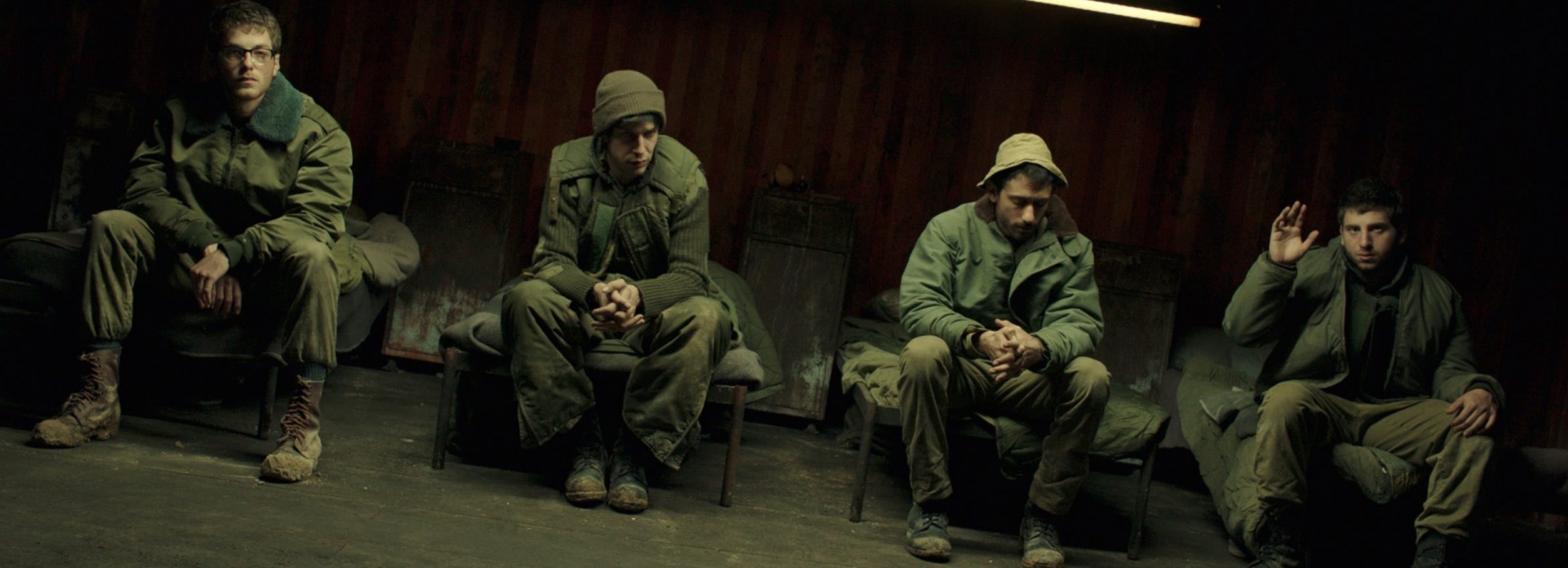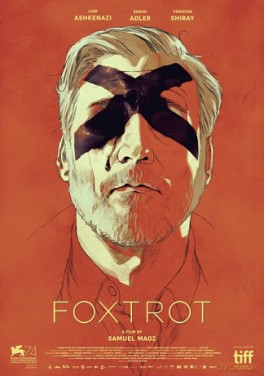Robert Williams
 The hapless testimony by three Ivy League university presidents from Harvard, MIT and the University of Pennsylvania before the U.S. House Committee on Education and the Workforce can be traced to Qatar and its insidious campaign to buy itself influence in US academia. Pictured L-R: Claudine Gay, President of Harvard University, Liz Magill, then-President of University of Pennsylvania, Professor Pamela Nadell of American University, and Sally Kornbluth, President of Massachusetts Institute of Technology, testify before the U.S. House Committee on Education and the Workforce on December 5, 2023. (Photo by Kevin Dietsch/Getty Images)
The hapless testimony by three Ivy League university presidents from Harvard, MIT and the University of Pennsylvania before the U.S. House Committee on Education and the Workforce can be traced to Qatar and its insidious campaign to buy itself influence in US academia. Pictured L-R: Claudine Gay, President of Harvard University, Liz Magill, then-President of University of Pennsylvania, Professor Pamela Nadell of American University, and Sally Kornbluth, President of Massachusetts Institute of Technology, testify before the U.S. House Committee on Education and the Workforce on December 5, 2023. (Photo by Kevin Dietsch/Getty Images)
- “At least 100 American colleges and universities illegally withheld information on approximately $13 billion in undocumented contributions from foreign governments, many of which are authoritarian…. Speech intolerance—manifesting as campaigns to investigate, censor, demote, suspend, or terminate speakers and scholars—was higher at institutions that received undocumented money from foreign regimes.” — ISGAP report, “The Corruption of the American Mind,” November 2023.
- Qatar makes it possible for Ivy League universities to claim that they receive no funds from the Qatari state, because the donations are funneled through the Qatar Foundation for Education, Science and Community Development, a not-for-profit organization established in 1995 by the Emir of Qatar. This ensures that the foundation can identify itself as a private organization, which enables Qatar to conceal its state funding as private donations.
- “At the time of writing, the State of Qatar contributes more funds to universities in the United States than any other country in the world, and raw donation totals omit critical, concerning details about the nature of Qatar’s academic funding.” — ISGAP report, “Networks of Hate,” December 2023.
-
“We would pay them [journalists]… Some of them have become MPs now. Others have become patriots…. We would pay [journalists] in many countries. We would pay them every year. Some of them received salaries. All the Arab countries were doing this. If not all, then most of them.” — Former Qatari Prime Minister Hamad bin Jassim, February 2022.
The hapless testimony by three Ivy League university presidents from Harvard, MIT and the University of Pennsylvania before the U.S. House Committee on Education and the Workforce can be traced to Qatar and its insidious campaign to buy itself influence in US academia.
Qatar, oil-rich and with an estimated population of only 2.5 million, is the largest foreign donor — that we know about — to American universities, with at least $4.7 billion donated between 2001 and 2021. Many of those billions went unreported to the Department of Education, according to research done by the Institute for the Study of Global Antisemitism and Policy (ISGAP). Under federal law, colleges and universities that receive donations from foreign sources that total at least $250,000 must disclose such transactions to the Department of Education.
Qatar is far from the only authoritarian nation that donates to American universities. According to a Department of Education report from April 2023, American universities and colleges have received $19 billion from unreported sources, more than half of which has come from authoritarian and antidemocratic Middle East governments.
Flouting the law by failing to disclose foreign donations to universities has been declared a “dark money nightmare.”
Former Secretary of Education Betsy DeVos wrote in February 2023:
“While there’s nothing inherently inappropriate about foreign-sourced gifts, there is a significant reason for concern if these gifts are not disclosed, as required by law.
“Unfortunately, the higher-ed lobby has made it no secret it opposes true transparency. The American Council on Education — the lobbying organization for colleges and universities — praised the Biden administration in an open letter for ending the investigations we launched into schools that were skirting the law and failing to report sources of foreign money.
“One major cause for concern is the high correlation between foreign gifts, especially from our geopolitical adversaries, and American universities that are home to major research laboratories, including those with Department of Defense contracts.”
To assess properly the damage that Qatari influence in the US is causing, it is important to understand what Qatar stands for and promotes. Qatar has for decades cultivated a close relationship with the Islamist Muslim Brotherhood, whose motto is: “‘Allah is our objective; the Prophet is our leader; the Quran is our law; Jihad is our way; dying in the way of Allah is our highest hope.” Its aim appears to be ensuring that Islamic law, Sharia, governs all countries and all matters.
Hamas, an offshoot of the Muslim Brotherhood, has enjoyed Qatar as its main sponsor, to the tune of up to $360 million a year, and was until recently the home of Hamas’ leadership. In 2012, Ismail Haniyeh, head of the terrorist group’s political bureau, Mousa Abu Marzook, and Khaled Mashaal, among others, moved to Qatar for a life of luxury. This month, likely because of Israel’s announcement that it will hunt down and eliminate Hamas leaders in Qatar and Turkey, the Qatar-based Hamas officials reportedly fled to other countries.
Qatar was also home to Sheikh Yusuf al-Qaradawi, the spiritual leader of the Muslim Brotherhood who was exiled from Egypt, until his death in September 2022. According to the Meir Amit Intelligence and Terrorism Information Center:
“Qaradawi is mainly known as the key figure in shaping the concept of violent jihad and the one who allowed carrying out terror attacks, including suicide bombing attacks, against Israeli citizens, the US forces in Iraq, and some of the Arab regimes. Because of that, he was banned from entering Western countries and some Arab countries…. In 1999, he was banned from entering the USA. In 2009, he was banned from entering Britain…”
Qaradawi also founded many radical Islamist organizations, which are funded by Qatar. These include the International Union of Muslim Scholars, which released a statement that called the October 7 massacre perpetrated by Hamas against communities in southern Israel an “effective” and “mandatory development of legitimate resistance,” and said that Muslims have a religious duty to support their brothers and sisters “throughout all of Palestine, especially in Al-Aqsa, Jerusalem, and Gaza.””
Qatar also still is home to the lavishly-funded television network Al Jazeera, founded in 1996 by Qatar’s Emir, Sheikh Hamad ibn Khalifa Al Thani. Called the “mouthpiece of the Muslim Brotherhood,” Al Jazeera began the violent “Arab Spring,” which “brought the return of autocratic rulers.“
In 2017, Saudi Arabia, the United Arab Emirates, Bahrain and Egypt, made 13 demands of Qatar: “to cut off relations with Iran, shutter Al Jazeera, and stop granting Qatari citizenship to other countries’ exiled oppositionists.” They subsequently cut ties with Qatar over its failure to agree to any of the demands, including ending its support for terrorism, the Muslim Brotherhood and Al Jazeera.
The Saudi state-run news agency SPA said at the time:
“[Qatar] embraces multiple terrorist and sectarian groups aimed at disturbing stability in the region, including the Muslim Brotherhood, ISIS [Islamic State] and al-Qaeda, and promotes the message and schemes of these groups through their media constantly,”
This is the kind of influence that US universities and colleges are more than happy to see on their campuses in exchange for billions of dollars in Qatari donations. According to ISGAP:
“[F]oreign donations from Qatar, especially, have had a substantial impact on fomenting growing levels of antisemitic discourse and campus politics at US universities, as well as growing support for anti-democratic values within these institutions of higher education.”
In November 2023 ISGAP published a report, “The Corruption of the American Mind: How concealed foreign funding of higher education in the United States predicts the erosion of democratic values and antisemitic sentiment on campus.” It found that there is a direct correlation between antisemitism and censored speech on campus and undocumented contributions from foreign governments, notably Qatar. According to the report:
“At least 100 American colleges and universities illegally withheld information on approximately $13 billion in undocumented contributions from foreign governments, many of which are authoritarian.
“In institutions receiving such undocumented money:
- Political campaigns to silence academics were more prevalent.
— Campuses receiving undocumented funds exhibited approximately twice as many campaigns to silence academics as those that did not.
- Students reported greater exposure to antisemitic and anti-Zionist rhetoric.
- Higher levels of antisemitic incidents were reported on their campuses.
- This relationship of undocumented money to campus antisemitism was stronger when the undocumented donors were Middle Eastern regimes rather than other regimes.
— From 2015-2020, Institutions that accepted money from Middle Eastern donors, had, on average, 300% more antisemitic incidents than those institutions that did not….
“Speech intolerance—manifesting as campaigns to investigate, censor, demote, suspend, or terminate speakers and scholars—was higher at institutions that received undocumented money from foreign regimes.”
Qatar makes it possible for Ivy League universities to claim that they receive no funds from the Qatari state, because the donations are funneled through the Qatar Foundation for Education, Science and Community Development, a not-for-profit organization established in 1995 by the Emir of Qatar. This ensures that the foundation can identify itself as a private organization, which enables Qatar to conceal its state funding as private donations.
In a report published this month, “Networks of Hate: Qatari Paymasters, Soft Power and the Manipulation of Democracy,” ISGAP wrote:
“At the time of writing, the State of Qatar contributes more funds to universities in the United States than any other country in the world, and raw donation totals omit critical, concerning details about the nature of Qatar’s academic funding. For instance, Qatar concentrates its donations within a contained number of elite U.S. universities to maximize its influence. This targeted approach suggests that strategic motivations for instance—to advance Qatari state interests, influence the Qatari strategy—rather than pure philanthropy.”
The issue of Qatar on US campuses, as serious as it is, is only part of a larger picture of Qatari influence in the US and the rest of the West.
Qatar funds US think-tanks, such as the Richardson Center for Global Engagement and the Brookings Institution, and infiltrates US media. In 2021, Qatar pledged that it would invest $10 billion in US ports. According to the US State department:
“In recent years, Qatar has significantly bolstered its U.S. investments through its sovereign wealth fund, the Qatar Investment Authority (QIA), and its subsidiaries, notably Qatari Diar. In 2019, QIA pledged to allocate $45 billion to U.S. investments; it opened an office in New York City in 2015 to facilitate its U.S. investments. The fifth U.S.-Qatar Strategic Dialogue took place in Doha from November 2022 to March 2023 and further strengthened strategic and economic partnerships and addressed obstacles to investment and trade.”
In February 2022, former Qatari Prime Minister Hamad bin Jassim said in an interview, according to MEMRI, that Qatar had many journalists “in different countries” on its payroll.
“We had Journalists on our payroll. In many countries, we would pay them. Some of them have become MPs now. Others have become patriots. I know them. We would pay [journalists] in many countries. We would pay them every year. Some of them received salaries. All the Arab countries were doing this. If not all, then most of them.”
Robert Williams is a researcher based in the United States.
 foto:Film
foto:Film CHOCHOLI TANIEC
CHOCHOLI TANIEC „Fokstrot”, reż. Samuel Maoz. Izrael, Szwajcaria, Niemcy, Polska 2017, w kinach od 7 września 2018
„Fokstrot”, reż. Samuel Maoz. Izrael, Szwajcaria, Niemcy, Polska 2017, w kinach od 7 września 2018 



